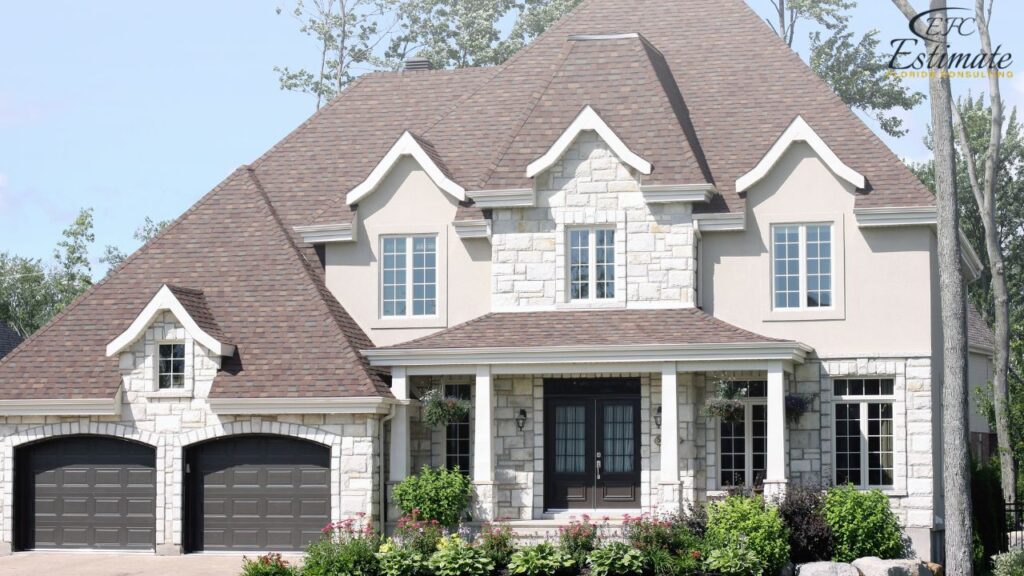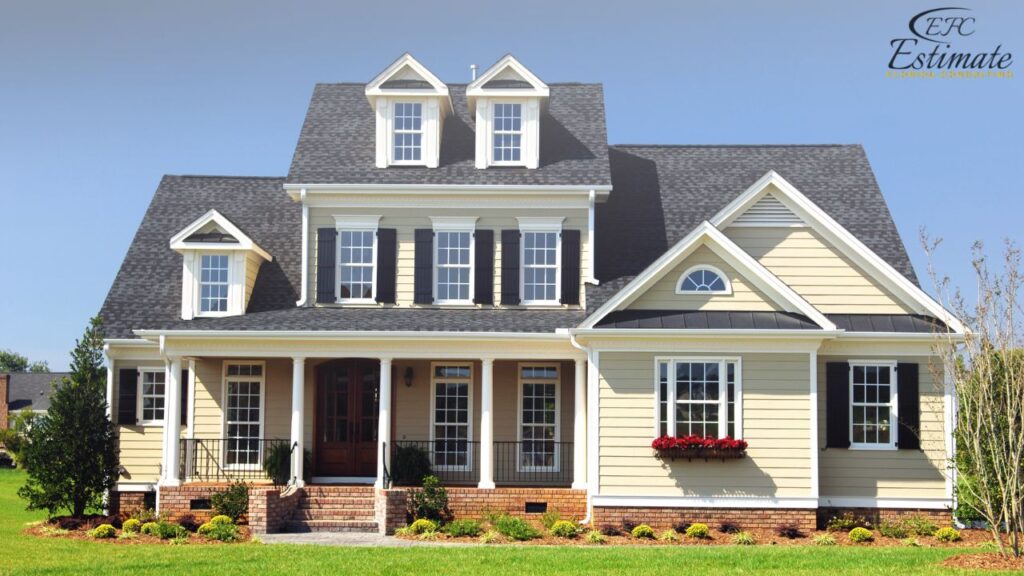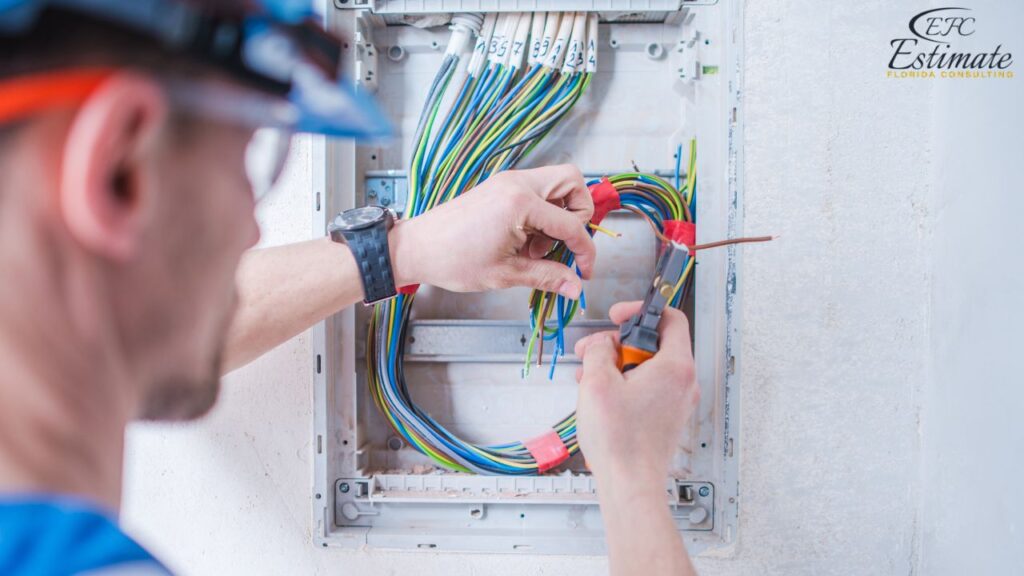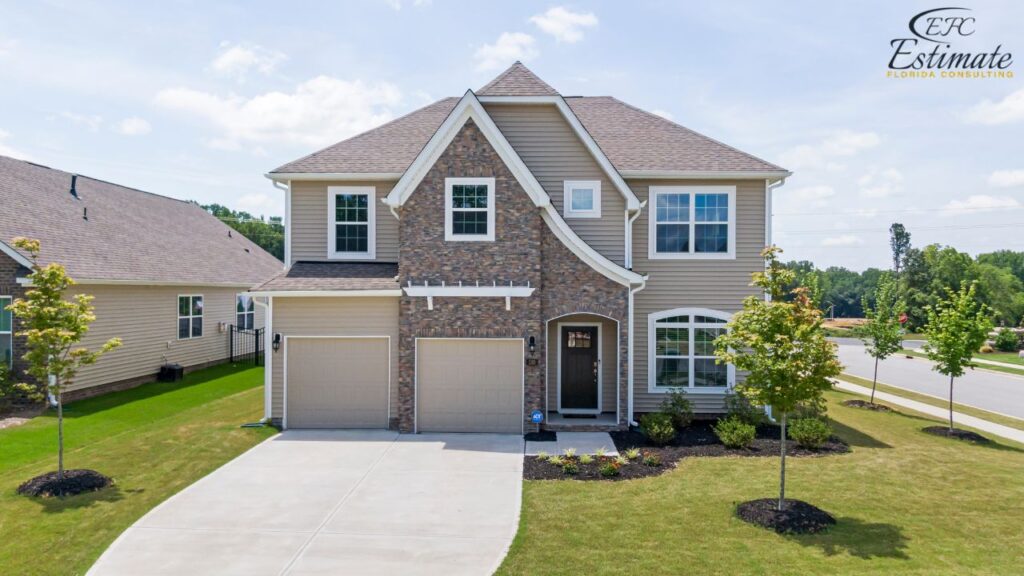Average Cost to Build a 1,200 Sq Ft House in Florida
The average cost to build a 1,200 sq ft house in Florida typically ranges from $108,200 to $197,200, translating to $90 to $164 per square foot. This total cost includes materials, labor, permits, site preparation, and interior finishes. Lower-end costs cover basic materials and standard designs, while higher-end costs involve premium materials, custom designs, and advanced features. Factors influencing the cost per square foot include location, design complexity, material quality, and local labor rates. Proper planning and budgeting for unforeseen expenses are essential to ensure the project stays within the estimated cost range.

Cost Breakdown
Materials
The cost of materials for a 1,200 square foot house can vary widely depending on the quality and type of materials used. Here’s a detailed breakdown of typical material costs:
Material | Estimated Cost per Sq Ft (in dollars) | Total Cost for 1,200 Sq Ft (in dollars) |
Foundation (Concrete) | $5 – $10 | $6,000 – $12,000 |
Framing (Wood) | $15 – $30 | $18,000 – $36,000 |
Roofing (Asphalt Shingles) | $3 – $5 | $3,600 – $6,000 |
Siding (Vinyl) | $4 – $7 | $4,800 – $8,400 |
Windows and Doors | $5 – $10 | $6,000 – $12,000 |
Flooring (Mixed) | $3 – $7 | $3,600 – $8,400 |
Plumbing Fixtures | $2 – $4 | $2,400 – $4,800 |
Electrical Fixtures | $2 – $4 | $2,400 – $4,800 |
Insulation | $1 – $3 | $1,200 – $3,600 |
Drywall | $1 – $2 | $1,200 – $2,400 |
Paint | $1 – $2 | $1,200 – $2,400 |
Foundation (Concrete)
The foundation is a critical component of the house, providing structural support. Concrete is commonly used due to its durability and strength. The cost can vary depending on the type of foundation (slab, crawl space, or basement) and the soil conditions at the site. Proper foundation work is essential to prevent future issues like settling or cracking, which can be costly to repair. A well-built foundation ensures the longevity and stability of the house.
Framing (Wood)
Wood framing is the skeleton of the house, supporting the walls, roof, and floors. The cost of framing can vary based on the type and quality of wood used, as well as the complexity of the design. High-quality lumber and complex designs will increase the cost. Proper framing is crucial for the structural integrity of the house, providing a stable base for all other construction elements. It also affects the overall energy efficiency and comfort of the home.
Roofing (Asphalt Shingles)
Asphalt shingles are a popular roofing material due to their affordability and durability. The cost of roofing can vary based on the type of shingles used and the complexity of the roof design. Higher-end shingles and complex rooflines will increase the cost. A well-installed roof protects the house from weather elements and contributes to the home’s energy efficiency. Choosing the right roofing material can enhance the home’s curb appeal and longevity.
Siding (Vinyl)
Vinyl siding is a common choice for exterior cladding due to its low cost and maintenance. The cost can vary based on the quality and style of the siding. Premium vinyl siding with additional features like insulation will increase the cost. Siding not only enhances the aesthetic appeal of the house but also provides protection against weather conditions. High-quality siding can improve the home’s energy efficiency and reduce maintenance costs over time.
Windows and Doors

The cost of windows and doors can vary widely based on the type, quality, and number of units. Energy-efficient windows and custom doors will increase the overall cost. The placement and size of windows and doors can also impact the cost. High-quality windows and doors improve the home’s insulation, security, and aesthetic appeal. Investing in energy-efficient options can reduce heating and cooling costs and increase the home’s value.
Flooring (Mixed)
Flooring costs can vary depending on the materials used. Options include hardwood, laminate, tile, and carpet. The choice of flooring can significantly impact the overall cost, with high-end materials like hardwood being more expensive. The right flooring enhances the comfort, durability, and visual appeal of the home. It also affects maintenance requirements and the home’s overall value. Choosing durable and easy-to-maintain flooring can provide long-term benefits.
Plumbing Fixtures
Plumbing fixtures include items like sinks, faucets, toilets, and showers. The cost can vary based on the quality and style of the fixtures. High-end fixtures and custom installations will increase the cost. Quality plumbing fixtures ensure reliable performance and add to the home’s aesthetic appeal. Investing in water-efficient fixtures can reduce utility bills and contribute to sustainability efforts.
Electrical Fixtures
Electrical fixtures include outlets, switches, light fixtures, and wiring. The cost can vary based on the complexity of the electrical system and the quality of the fixtures. Energy-efficient and smart home systems will increase the cost. Proper electrical installation is essential for safety and functionality. Upgrading to modern electrical fixtures can enhance the home’s convenience and energy efficiency.
Insulation
Insulation is essential for energy efficiency and comfort. The cost can vary based on the type and amount of insulation used.

Higher R-value insulation and environmentally friendly options will increase the cost. Proper insulation helps maintain a consistent indoor temperature, reducing heating and cooling costs. Investing in high-quality insulation can improve the home’s energy efficiency and comfort.
Drywall
Drywall is used to create the interior walls and ceilings. The cost can vary based on the type and quality of drywall used. Specialty drywall, such as moisture-resistant or soundproof, will increase the cost. Quality drywall installation provides a smooth and durable surface for painting and finishing. It also contributes to the home’s sound insulation and fire resistance.
Paint
Paint is used to finish the interior and exterior surfaces. The cost can vary based on the quality and type of paint used. High-quality, eco-friendly paints will increase the cost. Painting enhances the aesthetic appeal of the home and protects surfaces from wear and damage. Choosing durable and low-VOC paints can improve indoor air quality and reduce maintenance needs.
Labor
Labor costs can also vary widely depending on the complexity of the project and the going rates in the area. Here’s an estimate of labor costs:
Labor Task | Estimated Cost per Hour (in dollars) | Total Cost for 1,200 Sq Ft (in dollars) |
Site Preparation | $50 – $70 | $4,000 – $5,600 |
Foundation Work | $60 – $85 | $4,800 – $6,800 |
Framing | $70 – $100 | $5,600 – $8,000 |
Roofing | $60 – $85 | $4,800 – $6,800 |
Siding | $50 – $70 | $4,000 – $5,600 |
Windows and Doors | $50 – $70 | $4,000 – $5,600 |
Electrical Installation | $60 – $85 | $4,800 – $6,800 |
Plumbing Installation | $60 – $85 | $4,800 – $6,800 |
Insulation Installation | $50 – $70 | $4,000 – $5,600 |
Drywall Installation | $50 – $70 | $4,000 – $5,600 |
Interior Finishing | $50 – $70 | $4,000 – $5,600 |
Download Template For House Construction Project Breakdown
- Materials list updated to the zip code
- Fast delivery
- Data base of general contractors and sub-contractors
- Local estimators

Additional Costs
Additional costs can include permits, inspections, and any custom features or finishes. Here’s an estimate of these costs:
Additional Component | Estimated Cost (in dollars) |
Permits and Inspections | $1,000 – $3,000 |
Custom Finishes (flooring, lighting) | $2,000 – $5,000 |
HVAC System | $4,000 – $7,000 |
Landscaping | $1,000 – $3,000 |
Miscellaneous Expenses | $1,000 – $3,000 |
Permits and Inspections
Permits and inspections are required for new construction and can add to the overall cost. These fees can vary by municipality and the complexity of the project. Ensuring that all permits are obtained and inspections passed is crucial for a successful build. The cost of permits can include fees for zoning, building, electrical, plumbing, and mechanical inspections. Obtaining the necessary permits ensures compliance with local regulations and standards, preventing legal issues and potential fines.
Custom Finishes
Custom finishes can include high-end flooring, specialty lighting, and custom cabinetry. These features add to the overall cost but can enhance the aesthetic and functionality of the home. Custom finishes allow homeowners to personalize their space and add unique design elements. High-quality finishes can also increase the home’s value and appeal, making it more attractive to potential buyers.
HVAC System
An HVAC system is essential for maintaining a comfortable indoor environment. The cost can vary based on the type and efficiency of the system. High-efficiency systems and those with advanced features like zoning or smart thermostats will increase the cost. Proper installation and sizing of the HVAC system are crucial for optimal performance and energy efficiency. Investing in a high-quality HVAC system can improve indoor air quality and reduce energy bills.
Landscaping
Landscaping costs can include planting trees, shrubs, and flowers, as well as installing sod, mulch, and irrigation systems. A well-designed landscape enhances the curb appeal of the home and creates an inviting outdoor space. The cost can vary based on the complexity and scale of the landscaping project. Investing in professional landscaping can add to the property’s value and provide a pleasant environment for outdoor activities.
Miscellaneous Expenses
Miscellaneous expenses can include unexpected costs that arise during construction, such as additional materials, equipment rentals, or unforeseen repairs. Having a contingency budget for these expenses helps ensure the project stays on track and can handle any surprises without significant delays or cost overruns. Properly managing these costs can prevent disruptions and ensure the smooth completion of the project. Planning for miscellaneous expenses ensures that the project can adapt to any challenges that may arise, maintaining the quality and timeline of the construction.

Factors Affecting the Cost
Location
The location of the house can significantly impact construction costs. Urban areas tend to have higher labor and material costs compared to rural areas due to the higher cost of living and increased demand for services. Additionally, local building codes and regulations can affect the overall cost of construction. Coastal areas might also have higher costs due to the need for hurricane-resistant materials and construction techniques, which are essential for ensuring the durability and safety of the home in these regions.
Materials
The choice of materials can greatly influence the overall cost. High-end materials such as hardwood flooring, granite countertops, and custom cabinetry will increase the cost, while more affordable materials like laminate flooring and standard fixtures can help keep costs down. Additionally, the availability of materials can vary by location, potentially affecting costs. It is important to choose materials that balance quality and cost, as higher-quality materials may offer better durability and lower maintenance costs in the long run.
Labor
Labor costs can vary based on the complexity of the project, the availability of skilled labor, and the going rates in the area. Hiring experienced and reputable contractors is crucial for ensuring quality work, but it can also add to the overall expense. The level of customization and the complexity of the design can also impact labor costs. Projects that require specialized skills or intricate designs may command higher labor fees. It is advisable to get multiple quotes from contractors to ensure competitive pricing.
Design and Features
The design and features of the house, including the number of bedrooms and bathrooms, the type of roof, and additional features such as a garage or outdoor living space, can all affect the cost. Custom designs and high-end finishes will increase the overall cost. Features like energy-efficient windows, smart home technology, and luxurious fixtures can add to the initial investment but may offer savings or increased value over time. Careful planning of the layout and features can help optimize the use of space and resources, potentially reducing costs.
Permits and Regulations
Permits and inspections are required for new construction and can add to the overall cost. These fees can vary by municipality and the complexity of the project. Ensuring that all permits are obtained and inspections passed is crucial for a successful build. The process can include fees for zoning, building, electrical, plumbing, and mechanical inspections. Understanding local regulations and planning for these costs early in the project can help avoid delays and additional expenses. Working with knowledgeable professionals who are familiar with local codes can streamline the permitting process.
Get 5 New Leads Next 7 Days With Our System
- Multi-Family Building
- Hotel Building
- Hospital Building
- Warehouse Building
- High-Rise Building
- Shopping Complex
Conclusion
Building a 1,200 square foot house in Florida is a significant investment, with costs varying based on location, materials, labor, and additional features. By understanding the various costs involved and planning accordingly, you can ensure a successful construction project that meets your budget and expectations. Investing in high-quality materials, experienced labor, and careful planning can result in a durable, comfortable, and aesthetically pleasing home that provides long-term value. Properly managing the project not only ensures compliance with safety standards but also maximizes the long-term benefits of the investment, providing a functional, efficient, and visually appealing living space. Taking a proactive approach to budgeting and working with reputable professionals can help avoid unexpected expenses and ensure the smooth completion of the project.
FAQs
The average cost to build a 1,200 sq ft house in Florida typically ranges from $108,200 to $197,200, translating to $90 to $164 per square foot. This total cost includes materials, labor, permits, site preparation, and interior finishes.
Factors influencing the cost per square foot include location, design complexity, material quality, and local labor rates. Proper planning and budgeting for unforeseen expenses are essential to ensure the project stays within the estimated cost range.
Urban areas tend to have higher labor and material costs compared to rural areas due to the higher cost of living and increased demand for services. Coastal areas might also have higher costs due to the need for hurricane-resistant materials and construction techniques.
The choice of materials can greatly influence the overall cost. High-end materials such as hardwood flooring, granite countertops, and custom cabinetry will increase the cost, while more affordable materials like laminate flooring and standard fixtures can help keep costs down.
Here’s a detailed breakdown of typical material costs:
- Foundation (Concrete): $5 – $10 per sq ft ($6,000 – $12,000)
- Framing (Wood): $15 – $30 per sq ft ($18,000 – $36,000)
- Roofing (Asphalt Shingles): $3 – $5 per sq ft ($3,600 – $6,000)
- Siding (Vinyl): $4 – $7 per sq ft ($4,800 – $8,400)
- Windows and Doors: $5 – $10 per sq ft ($6,000 – $12,000)
- Flooring (Mixed): $3 – $7 per sq ft ($3,600 – $8,400)
- Plumbing Fixtures: $2 – $4 per sq ft ($2,400 – $4,800)
- Electrical Fixtures: $2 – $4 per sq ft ($2,400 – $4,800)
- Insulation: $1 – $3 per sq ft ($1,200 – $3,600)
- Drywall: $1 – $2 per sq ft ($1,200 – $2,400)
Paint: $1 – $2 per sq ft ($1,200 – $2,400)
Labor costs can vary widely depending on the complexity of the project and the going rates in the area. Here’s an estimate of labor costs:
- Site Preparation: $50 – $70 per hour ($4,000 – $5,600)
- Foundation Work: $60 – $85 per hour ($4,800 – $6,800)
- Framing: $70 – $100 per hour ($5,600 – $8,000)
- Roofing: $60 – $85 per hour ($4,800 – $6,800)
- Siding: $50 – $70 per hour ($4,000 – $5,600)
- Windows and Doors: $50 – $70 per hour ($4,000 – $5,600)
- Electrical Installation: $60 – $85 per hour ($4,800 – $6,800)
- Plumbing Installation: $60 – $85 per hour ($4,800 – $6,800)
- Insulation Installation: $50 – $70 per hour ($4,000 – $5,600)
- Drywall Installation: $50 – $70 per hour ($4,000 – $5,600)
- Interior Finishing: $50 – $70 per hour ($4,000 – $5,600)
Permits and inspections are required for new construction and can add to the overall cost. These fees can vary by municipality and the complexity of the project. Ensuring that all permits are obtained and inspections passed is crucial for a successful build.
Custom finishes and high-quality materials can enhance the aesthetic and functionality of the home, increase its value, and provide long-term benefits such as durability and lower maintenance costs.
Proper planning and budgeting for unforeseen expenses are essential to ensure the project stays within the estimated cost range. It also helps in avoiding delays and additional costs during the construction process.
Google Reviews



Process To Get House Construction Cost Estimate Report
Here I am going to share some steps to get house construction cost estimate report.
-
You need to send your plan to us.
You can send us your plan on info@estimatorflorida.com
-
You receive a quote for your project.
Before starting your project, we send you a quote for your service. That quote will have detailed information about your project. Here you will get information about the size, difficulty, complexity and bid date when determining pricing.
-
Get Estimate Report
Our team will takeoff and estimate your project. When we deliver you’ll receive a PDF and an Excel file of your estimate. We can also offer construction lead generation services for the jobs you’d like to pursue further.

